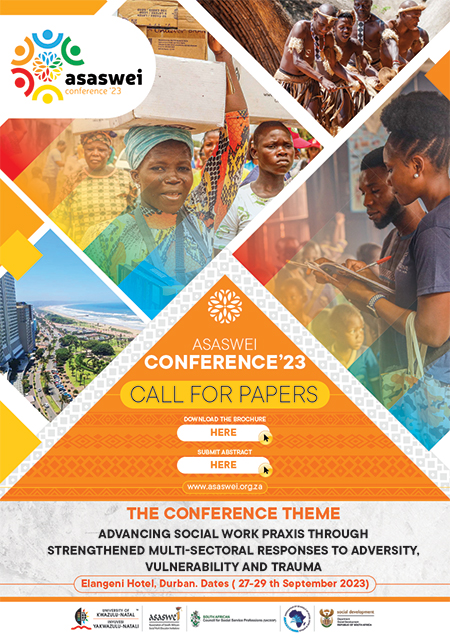The View page displays a submission's general information and data. Watch video
Submission information
Submission Number: 100
Submission ID: 134
Submission UUID: 4e63a443-45f6-48aa-bb74-1eec1d1ddc61
Submission URI: /2023/abstracts
Created: Thu, 07/06/2023 - 12:51
Completed: Thu, 07/06/2023 - 12:53
Changed: Mon, 07/31/2023 - 16:17
Remote IP address: 2a0d:6fc7:51b:fcbe:982e:2bab:ebc8:ee46
Submitted by: Anonymous
Language: English
Is draft: No
Current page: Complete
Webform: Abstract
Presenters
Dr.
Wittenberg
Nir
Ariel University
Dr. Nir Wittenberg is a professor of Social Work at Ariel University. Holding a Ph.D. in Social Work from Tel Aviv University, Dr. Wittenberg is a licensed social worker, lecturer, and researcher. With a strong commitment to addressing social challenges and improving the well-being of individuals and communities, Dr. Wittenberg specializes in innovative approaches that benefit vulnerable populations, including at-risk youth, LGBTQ individuals, and families living in extreme poverty. His research interests include social support systems, digital tools, and help-seeking behavior. Dr. Wittenberg is a board member of a non-governmental organization that provides free online emotional support to Arab and Jewish residents.
No
Abstract
Big Five Personality Traits and Elective Co-Parenting among LGBTQ Populations
THEME 1: Promoting stakeholder partnerships that protect, support and enhance resilience during adverse events and trauma
SUB 1.4 Advocating for and reducing the vulnerabilities of undocumented migrants, refugees, asylum seekers, and LGBTQl+ populations
Oral Presentation
This presentation discusses a study examining the mediating role of perceived social support and subjective well-being in the relationship between Big Five personality traits and actively seeking an elective co-parenting (ECP) partner. The study includes a vulnerable population facing challenges due to societal norms and a lack of professional knowledge in marital and family counseling.
Data from 212 participants in Israel were collected using questionnaires to assess the ECP. The results indicated positive correlations between conscientiousness, agreeableness, and extraversion with perceived social support. Perceived social support, in turn, was positively related to seeking an ECP partner. Emotional stability and extraversion were also positively related to subjective well-being, which was also positively associated with seeking ECP partners. These findings suggest that specific personality traits may influence perceptions and potentially explain the decision to seek ECP.
Data from 212 participants in Israel were collected using questionnaires to assess the ECP. The results indicated positive correlations between conscientiousness, agreeableness, and extraversion with perceived social support. Perceived social support, in turn, was positively related to seeking an ECP partner. Emotional stability and extraversion were also positively related to subjective well-being, which was also positively associated with seeking ECP partners. These findings suggest that specific personality traits may influence perceptions and potentially explain the decision to seek ECP.
Reviewer ONE Feedback
Prof
Glynnis
Dykes
Yes
Empirical Research
Accepted
Reviewer TWO Feedback
Dr
Poppy
Masinga
Yes
Empirical Research
Accepted

